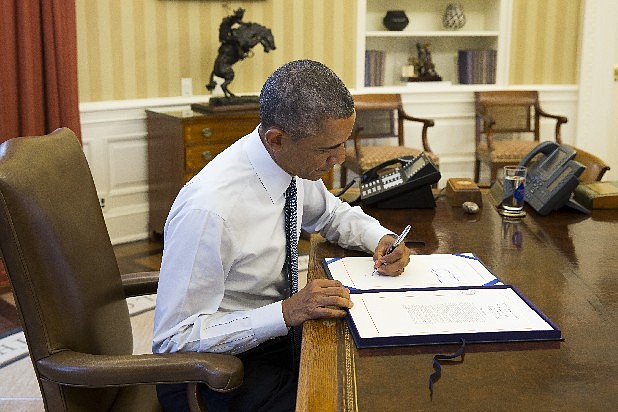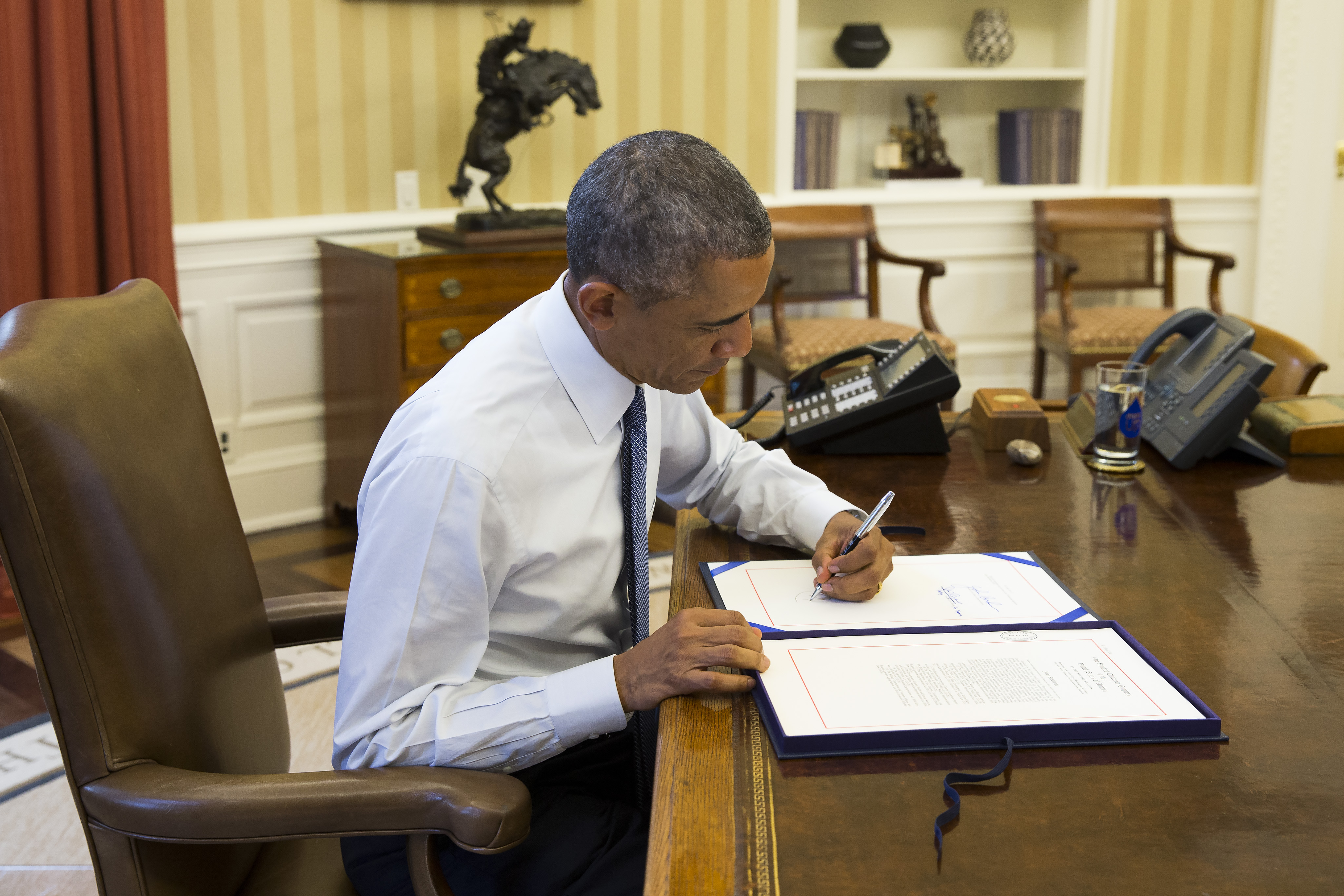WASHINGTON - It's a political rule of thumb that the public often rallies behind the president when the country faces peril from abroad. Sometimes, that can help candidates from his party in the next election.
So far, that doesn't seem to have happened for President Barack Obama and congressional Democrats as he ramps up a U.S.-led military campaign against Islamic State militants in Syria and Iraq.
Obama warned in a nationally broadcast speech last week that the militants present a menace to Americans in the Middle East and could pose "a growing threat" to the U.S. itself. Defense Secretary Chuck Hagel amplified that theme Thursday, telling Congress that the group is capable of dispatching radicalized Americans back to the U.S. for attacks.
Yet with congressional elections less than seven weeks away, there's no sign yet that the confrontation with the militants has improved Obama's drab public approval ratings. Boosting his numbers could give Democrats an important lift as they battle to retain Senate control and limit potential House losses.
"I wish," Rep. Nick Rahall, D-W.Va., said Thursday when asked if he detected signs of burgeoning support for Obama that might rub off on his own candidacy.
All this can change by Election Day. But Rahall, who faces a tough re-election battle, was among several candidates from both parties who said this week that the fight against the Islamic State militants seldom comes up on the campaign trail.
Rep. Steve Daines, R-Mont., favored to win his state's open Senate seat, said voters are concerned about the Islamic State and "the lack of a strategy that will effectively deal with this serious threat." But he said he hears more from people talking about a need for jobs and complaining about federal regulations.
If anything, it's Republicans who are starting to use the broader topic of national security as a campaign theme. The National Republican Congressional Committee, the House GOP's campaign arm, has started running TV ads against four Democratic candidates in Arizona, Iowa, Minnesota and New York accusing them of being lax on terror.
"Foreign policy is popping up as a bigger issue, and I think it relates to a sense of insecurity people are feeling," said Rep. Greg Walden, R-Ore., who chairs the committee. "It's part of a bigger narrative that's unfolding about things not working right."
The ads drew criticism from Rep. Steve Israel, D-N.Y., who heads the House Democrats' campaign organization and accused the GOP of politicizing the issue.
"Politics used to end at the water's edge," he said in a written statement. "It is repugnant that Republicans would try to exploit this threat to divide Americans at a time when our nation should be united."
Democrats say the battle against the Islamic State militants is too fresh and complicated an issue for Obama to have marshaled public support and improved his image, and for Democratic candidates to have possibly benefited. Only this summer has the group topped the news with its seizure of territory in Syria and Iraq and its atrocities -- including beheadings of two American journalists.
Sen. Richard Durbin, D-Ill., said that when Obama delivers a speech on the subject to the United Nations General Assembly next week, "it's going to start sinking in that it's more than just a nighttime speech from the White House, that there's a plan. And I think he will gain respect as a commander in chief leading our nation into a very challenging and difficult situation."
"It's difficult to navigate all the issues and players and permutations," Rep. Gerald Connolly, D-Va., said of the churning mix of warring factions in the Middle East. "And I don't think the sense of existential threat is the same" as it was after the terror attacks of Sept. 11, 2001.
Polls show that solid majorities favor U.S. military action against the Islamic State's fighters. But there's no evidence of that improving the public's view of Obama.
In a CBS News-New York Times poll conducted after Obama's Sept. 10 speech on his plan for battling the extremists, majorities said the president isn't tough enough against the militants and lacks a clear plan to counter them. And for the first time, more disapproved than approved of how he's dealing with terrorism. Nearly 6 in 10 disapproved of his handling of foreign policy.
That poll was among six major surveys this month showing that half or more of Americans disapprove of the overall job Obama is doing as president, compared to around 4 in 10 who approve. Those are dismal numbers that could make it harder on congressional Democrats in November.
Back in 2002 -- the first election after 9/11 -- President George W. Bush had a healthy 59 percent approval from a public jittery over terrorism, in polling by the nonpartisan Pew Research Center.
That was down from sky-high ratings exceeding 80 percent in the weeks following the terror strikes. Yet it was enough to help the GOP capture Senate control and gain a handful of House seats in the November 2002 voting.
"As a guy who ran in 2002, yeah, it helped," said Rep. Tom Cole, R-Okla. "Back then, we were putting George Bush in the commercials."

